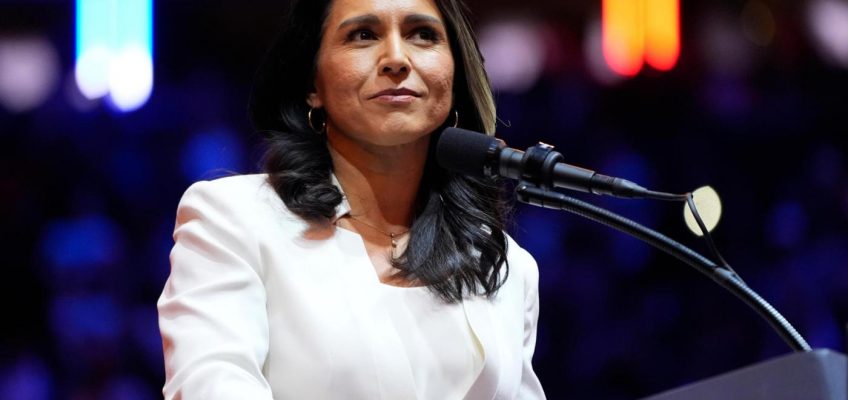As he assembles his team for a second term, President-elect Donald Trump is entitled to some latitude, even for his more unconventional picks. Yet not all executive-branch positions are created equal. Senate Republicans should be willing to draw a line when it comes to national security.
Of particular concern are the nation’s intelligence services, which Trump has proposed putting in the hands of Kash Patel (as Federal Bureau of Investigation director), John Ratcliffe (to head the Central Intelligence Agency) and Tulsi Gabbard (director of national intelligence).
The three have varying degrees of qualification for their posts. Ratcliffe, a former congressman and national intelligence director in Trump’s first term, has some experience in the field. After working as a junior federal prosecutor, Patel filled counterterrorism roles on Trump’s National Security Council. Gabbard served on the House Armed Services and Foreign Affairs committees while in Congress and is a lieutenant colonel in the Army Reserve.
Prudent reforms may indeed be warranted at the agencies they’re being asked to shake up. Overzealous FBI investigators did cut corners while looking into Russia’s backing of Trump during the 2016 election. Bloat and bureaucracy are common problems across federal agencies. Whistleblowers could use stronger protections, as could the targets of federal surveillance. Even some radical ideas — such as creating a new domestic intelligence agency and focusing the FBI solely on law enforcement — may merit a broader discussion.
None of that, however, means these agencies have gone “rogue,” as Trump has argued ever since they began looking into his alleged Russian ties. Inspector-general reports have found no evidence that investigations into the president-elect or his supporters have been politically motivated.
Indeed, many of the loudest complaints have been directed at public statements by retired officials, which is a separate issue. The vast majority of intelligence officials are dedicated public servants focused on a challenging task that is only getting harder as threats proliferate.
If Trump’s priority was to improve U.S. intelligence gathering and analysis, he could’ve chosen any number of change-minded national-security figures to helm these agencies. Plenty of competent outsiders might also have been appointed to good effect.
By contrast, Patel and Gabbard stand out mostly for their fealty to the incoming president. The former in particular appears to have been elevated rapidly and far above his qualifications during Trump’s first term by casting himself as an administration enforcer.
More experienced senior officials refused to work with him. Former Defense Secretary Mark Esper has accused him of cavalierly endangering the lives of U.S. commandos during an operation. (The less said about his children’s books, starring a wizard named Kash the Distinguished Discoverer, the better.)
The risks of politicizing intelligence shouldn’t be taken lightly. Loose talk — not uncommon in Trump’s orbit — can endanger sources and methods. Gabbard’s mouthing of Russian propaganda and her 2017 meeting with Syrian dictator Bashar Assad may make U.S. allies think twice about sharing secrets with Washington.
Patel’s proposed purge of so-called deep-state gangsters at the FBI threatens to demoralize and distract agents who should be focused on terrorist plots, Chinese hacking campaigns and official grift.
Worst of all, manipulating intelligence to suit Trump’s fixations could lead to dangerously misguided policy decisions just as tensions with China, Russia, Iran and North Korea are running high.
While a president deserves a cabinet he trusts, the Senate has been given confirmation power for a reason. Appointing unqualified eccentrics to such crucial positions would be hugely irresponsible, not least if distorted intelligence contributes to a foreign-policy crisis under Trump. America’s intelligence agencies deserve better — and national security demands it.
— The Bloomberg Opinion Editorial Board


Leave a Reply